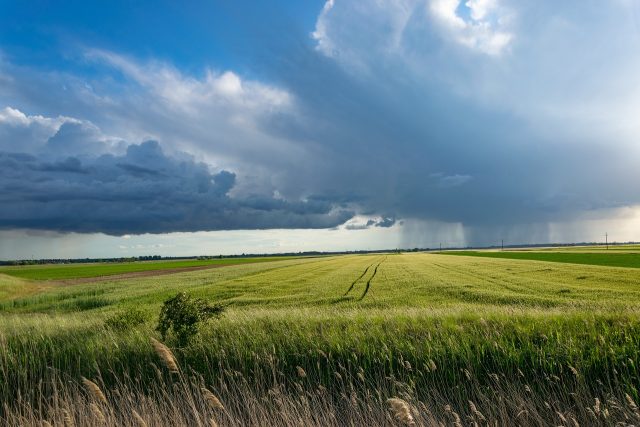
The European Union’s agricultural policy is at the centre of a major debate on its future evolution, with farmers’ fair income and environmental sustainability as central themes.
The discussion, which recently involved the European Parliament and several sector organisations, aims to redefine the Common Agricultural Policy (CAP) to address emerging economic and climate challenges. The European Commission, in the first hundred days of its next mandate, will present a new “vision for European agriculture”, based on the recommendations of the Strategic Dialogue on the Future of Agriculture, a forum launched in January 2023 by President Ursula von der Leyen. Two key questions will guide the construction of the new agricultural policy: how to guarantee a fair standard of living for farmers and how to ensure the sustainability of agriculture respecting planetary boundaries. These issues emerge in a context marked by strong protests by European farmers, who in recent months have drawn attention to the difficulties of the sector, not only in economic terms but also in terms of compatibility with new environmental regulations.
Speaking at a hearing before the European Parliament’s Agriculture Committee, the Director-General of the Directorate-General for Agriculture and Rural Development (DG Agri), Wolfgang Burtscher, said that the recommendations of the Strategic Dialogue delivered to the European Commission will form the basis of Brussels’ future work. Although the exact content of the new vision has yet to be defined, the general orientation is clear: supporting farmers fairly and promoting sustainable agricultural practices. One of the most discussed topics in the confrontation with the European Commission concerns the strengthening of the budget dedicated to the CAP, especially in view of its new post-2027 version, the proposal for which should be presented no earlier than summer 2025. It is a shared opinion that the CAP must adapt to new economic and climate challenges, as also suggested by Massimiliano Giansanti, president of Confagricoltura and recently elected head of Copa, the association that represents the interests of European farmers. Giansanti reiterated the need for an agricultural budget adequate to future challenges, stressing that farmers should be incentivized, not simply subsidized.
This means a stable budget, consistent with inflationary dynamics, that can support sustainable growth of the European agricultural sector. In a context of growing economic and environmental difficulties, farmers must be put in a position to continue producing quality food, maintaining their global competitiveness. Giansanti proposed five pillars on which the future CAP should be based. The first is to guarantee a decent income for farmers, addressing the problem of value distribution along the agri-food chain. In this way, we want to avoid that the increase in prices affects mainly producers and final consumers, with intermediaries making the greatest profits. The second pillar concerns the bureaucratic and administrative simplification of the CAP, one of the most sensitive issues for farmers. Bureaucratic complexities often represent an obstacle to accessing funds and agricultural development programs, making it difficult for many farmers, especially small ones, to benefit from the measures envisaged.
Reciprocity in trade agreements is another key point: the rules for trade with third countries must be fair and guarantee European farmers equal conditions of competition, preventing imports from countries with lower production standards from putting EU producers in difficulty. The fourth pillar concerns the promotion of generational renewal. The European agricultural sector is characterised by an increasingly aging population, and the lack of young farmers represents a challenge for long-term sustainability. It is necessary to make agriculture a more attractive career option for new generations, providing incentives and support for innovation.
Finally, research and innovation will be essential to address the challenges posed by climate change. Farmers, as underlined by Giansanti, are the true guardians of the environment and not the problem. They must be enabled to adopt new technologies and agricultural practices that reduce emissions and preserve biodiversity, while maintaining efficient and competitive agricultural production. Dario Nardella, MEP and coordinator for the Socialists and Democrats in the Agriculture Committee, reiterated the need for more resources for agriculture, with particular attention to small farmers, who are often the most affected by economic challenges. Nardella stressed that the transition to more sustainable agriculture requires significant investments, and Europe must be ready to support it. Antonio Decaro, President of the Envi Commission, relaunched the idea of creating a Fund for the agricultural transition, in line with the objectives of the European Green Deal.
This fund, co-financed by the European Union, should serve to align the CAP with environmental and climate challenges, supporting farmers in the adaptation process. The future EU agricultural policy faces complex challenges: ensuring the economic competitiveness of the sector, maintaining a decent income for farmers, and at the same time responding to the growing demand for environmental sustainability. The post-2027 CAP will have to rise to these challenges, providing adequate resources and innovative tools to support agriculture that is not only productive but also respectful of the planet’s limits.



 Subscribe
Subscribe